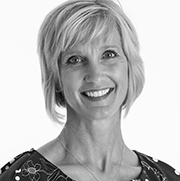 Yesterday, it was the nurses' strike. Today it’s measles, opioids and heroin. Tomorrow will certainly bring another hot topic in healthcare that’s anything but glitzy or fun to promote.
Yesterday, it was the nurses' strike. Today it’s measles, opioids and heroin. Tomorrow will certainly bring another hot topic in healthcare that’s anything but glitzy or fun to promote.
I’d personally prefer to spend my time creating a great joint care campaign, writing a news release about our latest award or interviewing a doctor for our weekly radio show. Yet, like so many other healthcare professionals, we chose this profession of marketing/communications/strategy with at least a hint of desire to “do good,” to make a difference. The opportunity to use our gifts & talents to communicate effectively about difficult topics is where our contribution to making healthcare better in our community and our country really counts.
Recently, Lake Region Healthcare hosted a “Community Conversation on Opioid & Heroin Abuse." It featured Fargo market WDAY-TV Station Reporter Kevin Wallevand who created the documentary “Addicted”. His work on the topic is a perfect example of the power of personal storytelling to bring deeper understanding and spur action.
The second featured speaker of the evening was Dr. Kurt DeVine of CHI St. Gabriel’s Health in Little Falls, Minn. The statistics he shared about the depth of the issue in this central Minnesota town were staggering. What stood out to me about Dr. DeVine’s message was the power of data to give us context, to help us create a plan and to help us measure our successes.
Hmm. Storytelling and data collection. This is our wheelhouse. Rather than shy away from controversial topics or dread difficult messaging, I’m working on embracing the not-so-pretty parts of my job.
Here are a couple things I’ve found helpful in my work.
- Being proactive. People in the middle of an issue often don’t realize until it’s too late that they need our expertise. I’m communicating with department heads, administrators and event planners frequently now to ensure they know our capacity to provide them with a full communication plan when they need it. From identifying and reaching key stakeholders and target audiences to press releases, media coverage and key messaging, I want them to know they have the Mar/Comm team in their back pocket at a moment’s notice.
-
Being attentive. It’s not my job to know what a doctor knows about the opioid crisis, but it is my job to help doctors, my CEO, and media contacts understand the topic at hand in order for the most effective interviews, articles and posts to emerge. In one day alone this past week, the MHA “In the News” feed had not one, not two, but three stories on the Opioid crisis:
I certainly don’t read them all word for word, but I’m working on paying attention to trending articles to give me both perspective and credibility when called on to address our organization’s stance.
Having a grasp on the opioid crisis wasn’t on my list of things I hoped to accomplish in my career. Feeling like I made a difference by helping to wage a battle against it in my community definitely is.
Katie Johnson, MHSCN President Elect